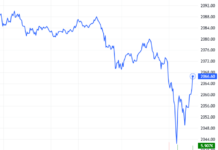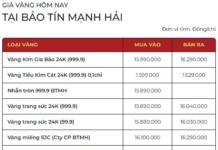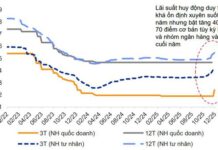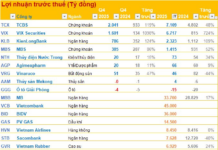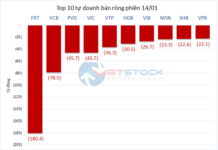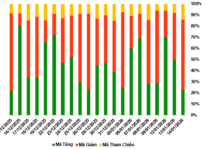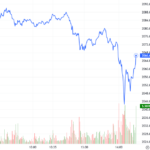On September 23, the Government’s Portal held a seminar on “Enhancing Tax Administration Effectiveness in E-commerce.” Information shared at the seminar revealed a consistent increase in tax revenue from e-commerce over the years: VND 83,000 billion in 2022, VND 97,000 billion in 2023, and over VND 78,000 billion in the first seven months of 2024 alone, with the possibility of surpassing VND 100,000 billion for the full year.
This significant rise in revenue comes not only from domestic businesses but also from international platforms such as Google, Facebook, and Amazon…
TAX MANAGEMENT CHALLENGES: GLOBAL APPROACHES
Ms. Lai Viet Anh, Deputy Director of the Department of E-commerce and Digital Economy (Ministry of Industry and Trade), shared that e-commerce activities in Vietnam have grown rapidly over the past 10-15 years, especially in the last five years, with a growth rate of 20-25% annually.
“About ten years ago, the scale of Vietnam’s e-commerce retail market was about $2.2 billion, but by 2023, according to the Ministry of Industry and Trade’s statistics, this figure had reached $20.5 billion, accounting for 8% of the country’s total retail sales of goods and service consumption. This ratio is predicted to reach 10% by 2025,” said Ms. Viet Anh.
According to the leader of the Department of E-commerce and Digital Economy, this is a very effective way to distribute goods and services to end consumers. At the same time, it is also a channel for small, micro, and medium-sized enterprises to engage in business, expand their markets, increase their income, and enhance their competitiveness in the domestic and international markets.
However, with rapid growth also comes the challenge of sustainable development. This includes ensuring fair competition and compliance with the law by market participants, including tax obligations.
“Currently, there are many cases of orders being placed outside of e-commerce platforms, through social media and platforms without online ordering functions, which poses a significant challenge to tax administration,” said Ms. Viet Anh.
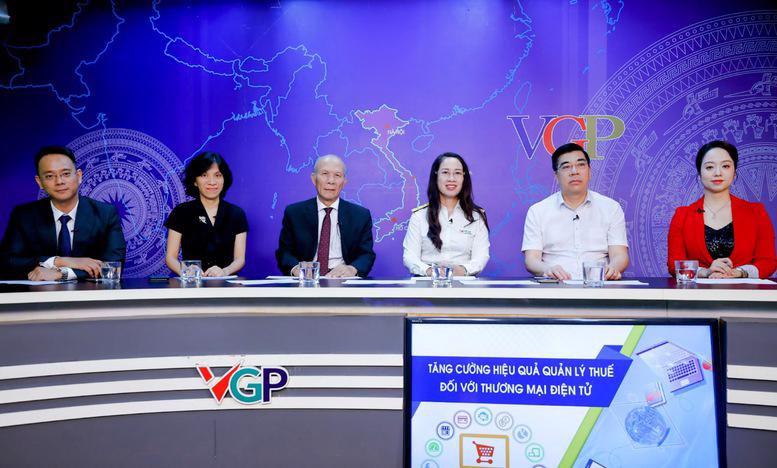
Commenting on the challenges in managing e-commerce, Assoc. Prof. Dr. Dinh Trong Thinh, an economic expert, said that e-commerce is a new form of business globally, and within a short period, new business models have emerged.
“How to collect the correct amount of taxes from e-commerce activities has become a common challenge for tax authorities worldwide, even in developed countries like the US or the European Union,” said Mr. Thinh.
“In 2022, there was a remarkable increase in tax revenue from e-commerce. Especially for big players like Google and Amazon, their tax payments have increased significantly from a very small amount to thousands of billions of VND at present. However, their revenue in the Vietnamese market is huge, but the amount of tax they pay is not yet commensurate.”
Assoc. Prof. Dr. Dinh Trong Thinh, Economic Expert.
Sharing experiences in tax declaration and payment from e-commerce platforms worldwide, Ms. Nguyen Thi Lan Anh, Director of the Department of Tax Management for Small and Medium Enterprises and Household Businesses (General Department of Taxation), said that the tax authority had studied and researched international experiences from the World Bank (WB) and the Organization for Economic Cooperation and Development (OECD).
According to Ms. Lan Anh, some countries have implemented mechanisms requiring e-commerce platforms and digital platforms to declare and pay taxes on behalf of providers. They also collect data from digital platforms, e-commerce floors, and units in the e-commerce ecosystem for domestic taxpayers.
“This will greatly reduce the compliance burden on providers and improve the efficiency and effectiveness of the tax administration agency,” said the representative of the General Department of Taxation.
Some countries apply this mechanism to domestic taxpayers. For example, Belgium and Uruguay apply the tax withholding mechanism at the source for the sharing economy. Some US states require some of the world’s major e-commerce platforms to be responsible for collecting and paying taxes on behalf of sellers, including both domestic and foreign sellers.
Global practices also show that some countries collect data from foreign e-commerce platforms and digital platforms. These regulations are quite diverse.
China also requires e-commerce platforms to declare information about trading activities, tax-related information of transactions to the tax authorities, and store this information for at least three years.
Based on the study of international experiences and the assessment of feasibility and suitability for deployment in Vietnam, the General Department of Taxation has proposed several contents in the process of amending the Law on Tax Administration, tax laws, and guiding documents towards increasing the responsibility of declaring and paying taxes on behalf of sellers at the source by e-commerce trading floors with online ordering functions. At the same time, it enhances the responsibility of providing information by e-commerce platforms and logistics service providers.
DATA MANAGEMENT AND MONEY FLOW ARE KEY
According to Ms. Lai Viet Anh, one of the keys to improving tax administration effectiveness is building a comprehensive data management foundation and applying information technology in management.
“We have shared data on more than 1,000 subjects owning e-commerce platforms in the form of websites or applications, moving towards sharing data of about 50,000 subjects owning e-commerce websites. We hope that from here, information sharing and connection will lead to data synchronization between state management agencies.”
Ms. Lai Viet Anh, Deputy Director of the Department of E-commerce and Digital Economy (Ministry of Industry and Trade)
Implementing Directive No. 18/CT-TTg of the Prime Minister on promoting data connection and sharing to serve the development of e-commerce, anti-tax loss, and ensuring monetary security, in the past year, the Ministry of Industry and Trade has closely coordinated with related agencies such as the General Department of Taxation, the Ministry of Finance, and the Ministry of Information and Communications to apply information technology and develop a data foundation for tax administration.
Accordingly, the Ministry of Industry and Trade has built and completed a shared database on e-commerce on the E-commerce Management Portal (online.gov.vn).
There is quite comprehensive data on enterprises owning e-commerce sales websites and e-commerce floors that have declared and registered with the Ministry of Industry and Trade.
As the management agency for subjects owning websites and e-commerce platforms, the Ministry of Industry and Trade has shared this data with state management agencies for industry and trade in all localities and is currently connecting and sharing it with the General Department of Taxation.
In addition, the Ministry of Industry and Trade applies information technology and new technologies such as big data analysis and artificial intelligence to help filter information, monitor e-commerce activities in the online environment, and detect violations. This will enhance state management in this field.
From the perspective of a payment intermediary unit, Mr. Tran Manh Nam, Director of VNPAY Enterprise Block, said that in the past five years, electronic payments have grown remarkably with various payment methods. Through this step, it is possible to verify the revenue of sellers. The tax authority can then determine the tax obligations of these sellers based on their revenue.
“We should separate commercial and non-commercial money flows of owners, thereby helping tax authorities determine tax responsibilities and obligations of participating sellers. This also makes it easier for agencies to manage and collect the correct and full amount of taxes,” said Mr. Nam.
Why Exempt Billions of Dollars of Goods from Taxes When Entering Vietnam?
As per the current regulations, goods valued under VND 1 million (approximately USD 43) that are sent through express delivery services are exempt from import and input VAT taxes. This results in a significant amount of untaxed cross-border trade, with an estimated USD 1.3-1.9 billion worth of goods entering Vietnam each month.

